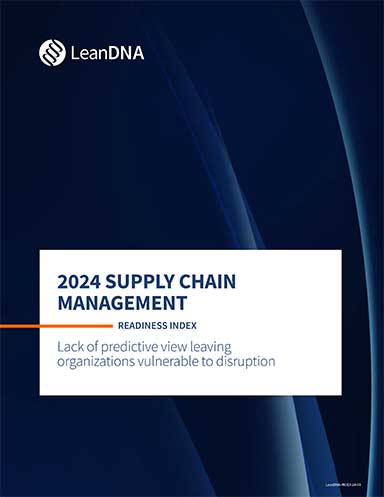Supply chain disruption planning remains front of mind for many as nearly three-quarters of supply chain professionals said they are taking planning seriously.
According to a survey from intelligence planning technology provider Board International, 71% of all global respondents, and 73% of supply chain professionals (SCP) are doing so, with the Ukraine war, cost-of-living crisis, and ongoing supply chain disruptions ensuring that scenario planning remains at the forefront of efforts.
“Industry leaders face immense pressure to navigate a complex and unpredictable business environment. The need to shift from conversation to action around scenario planning has never been more important,” said Jeff Casale, Board’s CEO. “But in far too many cases, organizations remain limited by legacy tools that are prone to errors and siloed data - leaving them vulnerable to costly mistakes and outdated insights. To better compete, they need to be proactive about anticipating disruptive events, modeling calculated scenarios and aligning strategic, financial and operational plans.”
The key business impacts cited most often by respondents include:
- Cyberattacks (SCP: 36%; Global: 34%),
- Labor shortages (SCP: 35%; Global: 36%),
- Blocking of key supply chain channels (SCP: 27%; Global: 30%)
- Fluctuating oil prices (SCP: 34%; Global: 29%)
Despite the seemingly heavy interest in scenario planning, the survey found that planning fatigue is taking hold. Board noted the survey revealed a 14% decline in how seriously companies are taking planning compared to last year, and 77% of supply chain professionals and 73% of all survey participants, admitted their organization is basing planning decisions on assumptions rather than specific data.
“Together, these findings suggest that many supply chain professionals are struggling to implement data-driven decision-making,” Board noted in a statement accompanying the results.
Nearly a third (SCP: 29%; Global: 29%) of respondents report that ineffective planning has impacted profitability, productivity and the ability to drive innovations, new products or services.
Lots of talk, but little action
While there is plenty of conversation around disruption, Board found that actions are not living up to the conversation. For instance, the survey found that 43% of SCPs are discussing rising tensions between China and Taiwan, but only 29% are actively scenario planning for an escalation in the region.
“The survey also found that 72% (Global: 70%) of supply chain professionals usually disregard the most extreme scenarios when planning, suggesting most companies are leaving themselves open to risk should the unexpected happen,” the statement noted.
A recent Dun & Bradstreet report found similar results. That report, released in March, found that most supply chains are underprepared for big disruptions. Similarly, a Kinaxis backed up these data points. That research found that less than one-fifth (17%) of global supply chain leaders believe their companies can respond to disruptions within 24 hours. Even more distressing is that 67% said they are “not very satisfied” with their firm’s response time.
“It’s more common than ever on quarterly earnings calls to hear that supply chains make or break success and this data proves that there is a tremendous opportunity across all sectors to improve resilience and risk mitigation,” said John Sicard, president and CEO at Kinaxis. “Cutting-edge, AI-enhanced, end-to-end orchestration tools that enable companies to gain transparency, agility and improved collaboration can help address these compounding trends and make chief supply chain officers the heroes instead of the scapegoats the next time trouble appears on the horizon.”
Agile planning needed
Board noted that adopting an agile planning approach can help, but its survey found an alarming gap in agile planning. The survey found that 76% of respondents globally believe their organization is equipped for agile planning, but only 14% have the right processes and technologies in place to make this a reality.
The survey identified three trouble areas that are preventing the closing of this gap. Poor data quality and governance (46%), ineffective processes based on largely manual activities (43%) and a lack of modern tools and technologies (42%), were noted most often.
These areas are further hampered by a lack of technological prowess, with 57% of supply chain planners noting they are using spreadsheets like Excel at least half of the time for their business planning. That is changing, however, as 41% said they are looking toward machine learning to help shift to a more data-driven and agile approach and 38% are turning to artificial intelligence.
The survey was conducted among 1,510 decision-makers in the UK, U.S., Germany, France and Italy. Respondents worked in finance, supply chain or merchandise planning functions across retail, manufacturing and CPG businesses.
SC
MR


More Disruption
What's Related in Disruption

 Explore
Explore
Topics
Procurement & Sourcing News
- 5 strategies for energy market cost and risk reduction
- Managing inflationary price risks in supplier-buyer contracts through indexing
- Procurement best practices
- What supports accurate spend analysis?
- Seizing value from supply network management
- Special planning teams for unusual times
- More Procurement & Sourcing
Latest Procurement & Sourcing Resources

Subscribe

Supply Chain Management Review delivers the best industry content.

Editors’ Picks





